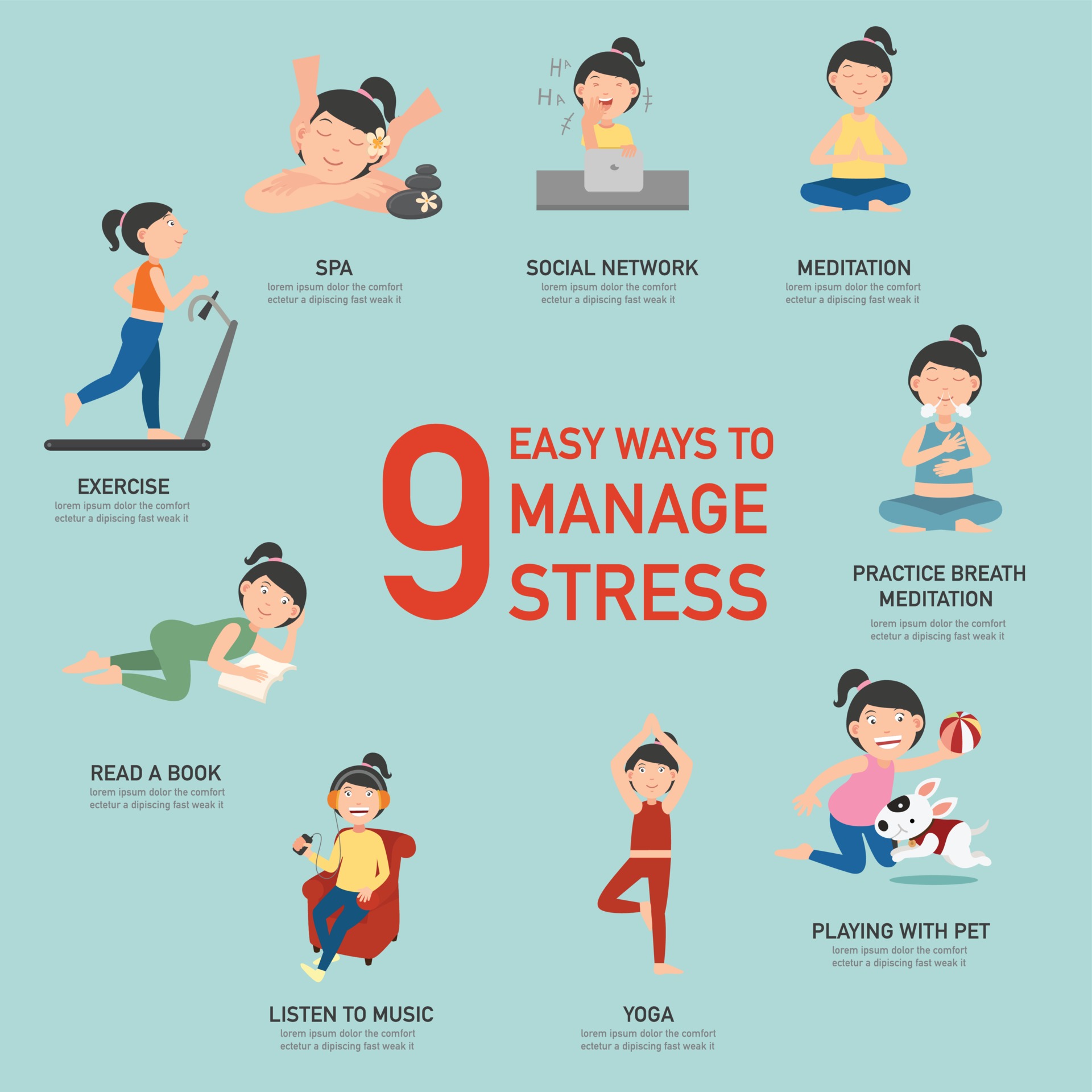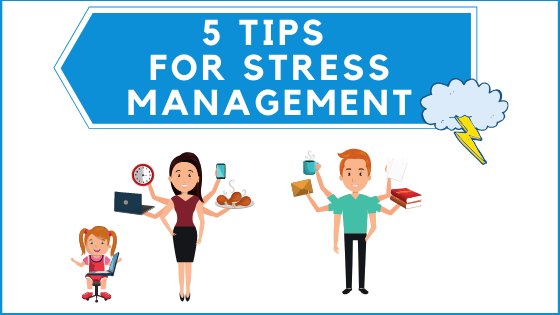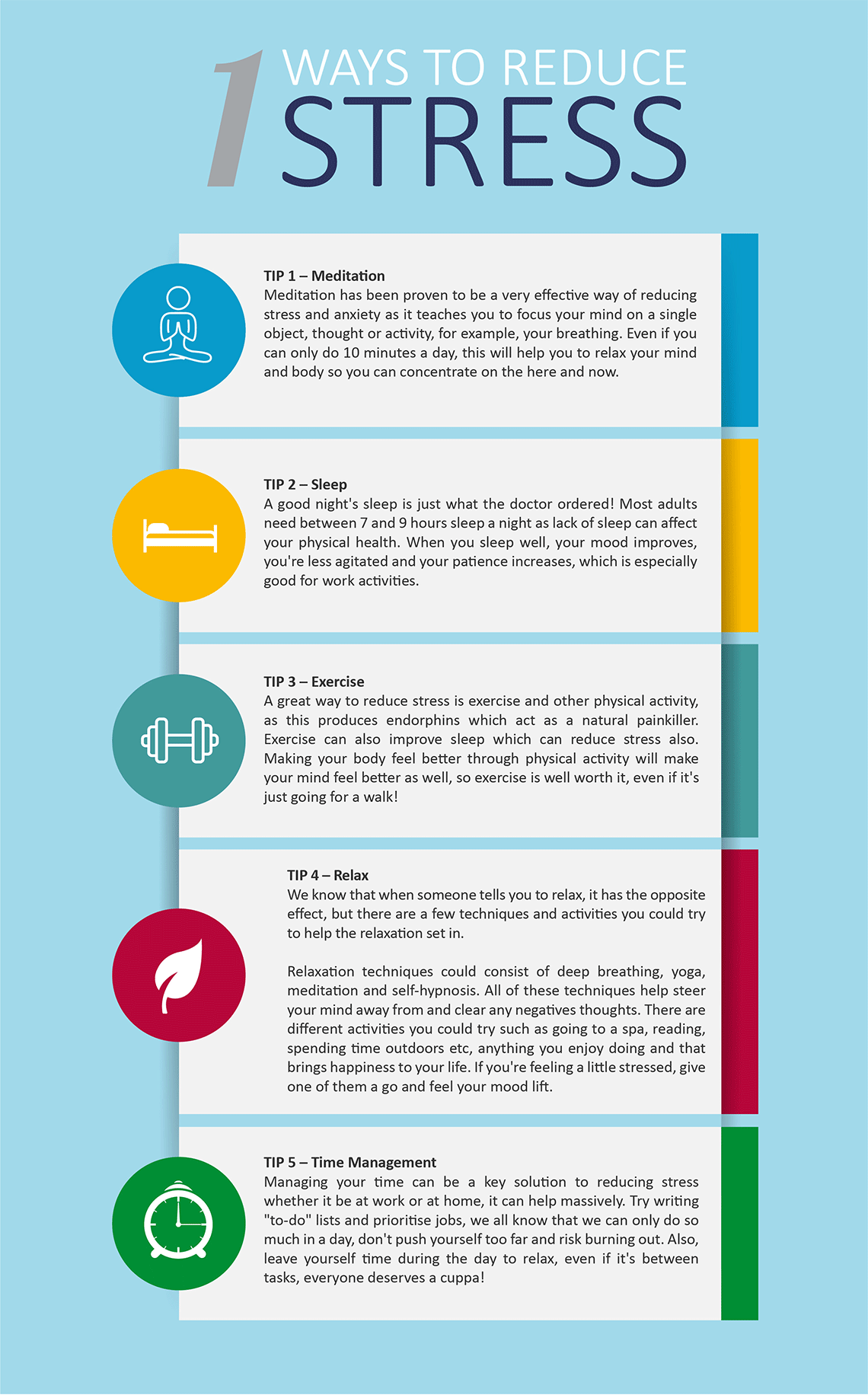“Healthy Ways to Manage Stress: A Comprehensive Guide
On this special occasion, we are delighted to explore the fascinating topic of Healthy Ways to Manage Stress: A Comprehensive Guide. Let’s weave together engaging insights and offer a fresh perspective to our readers.
About Video Healthy Ways to Manage Stress: A Comprehensive Guide
Healthy Ways to Manage Stress: A Comprehensive Guide

Stress is an inevitable part of life. Whether it stems from work pressures, relationship challenges, financial worries, or even positive life changes, stress can impact our physical, emotional, and mental well-being. While it’s impossible to eliminate stress entirely, learning healthy coping mechanisms is crucial for maintaining a balanced and fulfilling life. This article explores a variety of evidence-based strategies to help you manage stress effectively and build resilience.
Understanding Stress and Its Impact
Before delving into coping strategies, it’s important to understand what stress is and how it affects us. Stress is the body’s natural response to any demand or challenge. When we perceive a threat, our nervous system activates the "fight-or-flight" response, releasing hormones like cortisol and adrenaline. This response prepares us to either confront the threat or escape from it.
While this response is essential for survival in dangerous situations, chronic stress can have detrimental effects on our health. Prolonged exposure to stress hormones can lead to:
- Physical health problems: Headaches, muscle tension, digestive issues, high blood pressure, heart disease, weakened immune system.
- Mental health problems: Anxiety, depression, irritability, difficulty concentrating, sleep disturbances.
- Behavioral problems: Changes in appetite, social withdrawal, procrastination, substance abuse.
Healthy Stress Management Techniques

The following strategies can help you manage stress and improve your overall well-being:
1. Mindfulness and Meditation
Mindfulness involves paying attention to the present moment without judgment. Meditation is a practice that helps you train your mind to focus and calm your thoughts. Both mindfulness and meditation can reduce stress by:
- Calming the nervous system: By focusing on your breath or a specific object, you can slow down your heart rate and lower your blood pressure.
- Reducing negative thoughts: Mindfulness helps you observe your thoughts without getting carried away by them.
- Increasing self-awareness: You become more aware of your emotions and how they affect your body.

How to practice:
- Mindful breathing: Find a quiet place, sit comfortably, and focus on your breath. Notice the sensation of the air entering and leaving your body. When your mind wanders, gently bring your attention back to your breath.
- Body scan meditation: Lie down and bring your attention to different parts of your body, noticing any sensations without judgment.
- Guided meditation: Use a guided meditation app or online resource to lead you through a meditation session.

2. Exercise and Physical Activity
Exercise is a powerful stress reliever. Physical activity releases endorphins, which have mood-boosting effects. Exercise can also:
- Reduce muscle tension: Physical activity helps release tension that builds up in your muscles due to stress.
- Improve sleep: Regular exercise can improve the quality of your sleep.
- Boost self-esteem: Achieving fitness goals can increase your confidence and self-worth.
How to incorporate exercise:
- Find an activity you enjoy: Choose an activity that you find fun and motivating, such as walking, running, swimming, dancing, or yoga.
- Set realistic goals: Start with small goals and gradually increase the intensity and duration of your workouts.
- Make it a habit: Schedule exercise into your daily routine and stick to it as much as possible.
3. Social Connection and Support
Connecting with others can provide emotional support and reduce feelings of isolation. Social support can:
- Provide a sense of belonging: Feeling connected to others can boost your self-esteem and reduce feelings of loneliness.
- Offer a listening ear: Talking to someone about your problems can help you process your emotions and gain perspective.
- Provide practical assistance: Friends and family can offer help with tasks or responsibilities that are causing you stress.
How to strengthen social connections:
- Spend time with loved ones: Make time for activities that you enjoy with family and friends.
- Join a club or group: Find a group that shares your interests, such as a book club, sports team, or volunteer organization.
- Reach out to someone you haven’t spoken to in a while: Reconnecting with old friends can be a great way to boost your mood.
4. Time Management and Organization
Feeling overwhelmed by tasks and responsibilities can be a major source of stress. Effective time management and organization can help you feel more in control and reduce feelings of overwhelm.
Strategies for time management:
- Prioritize tasks: Identify the most important tasks and focus on those first.
- Break down large tasks: Divide large tasks into smaller, more manageable steps.
- Create a schedule: Plan your day and allocate time for specific tasks.
- Avoid procrastination: Tackle tasks as soon as possible to avoid feeling overwhelmed.
- Learn to say no: Don’t overcommit yourself by taking on too many responsibilities.
5. Healthy Diet and Nutrition
What you eat can have a significant impact on your stress levels. A healthy diet can help you:
- Stabilize blood sugar: Fluctuations in blood sugar can contribute to mood swings and irritability.
- Provide essential nutrients: Nutrients like magnesium, B vitamins, and omega-3 fatty acids play a role in stress regulation.
- Support gut health: The gut microbiome can influence mood and stress levels.
Dietary recommendations:
- Eat a balanced diet: Include plenty of fruits, vegetables, whole grains, lean protein, and healthy fats.
- Limit processed foods: Processed foods are often high in sugar, unhealthy fats, and sodium, which can exacerbate stress.
- Stay hydrated: Dehydration can contribute to fatigue and irritability.
- Limit caffeine and alcohol: These substances can interfere with sleep and worsen anxiety.
6. Adequate Sleep and Rest
Sleep deprivation can significantly increase stress levels. Aim for 7-9 hours of quality sleep each night.
Tips for improving sleep:
- Establish a regular sleep schedule: Go to bed and wake up at the same time each day, even on weekends.
- Create a relaxing bedtime routine: Take a warm bath, read a book, or listen to calming music before bed.
- Make your bedroom dark, quiet, and cool: These conditions promote restful sleep.
- Avoid caffeine and alcohol before bed: These substances can interfere with sleep.
- Limit screen time before bed: The blue light emitted from electronic devices can disrupt sleep.
7. Creative Expression and Hobbies
Engaging in creative activities and hobbies can provide a healthy outlet for stress and emotions.
Examples of creative activities:
- Art: Painting, drawing, sculpting, crafting.
- Music: Playing an instrument, singing, listening to music.
- Writing: Journaling, poetry, creative writing.
- Gardening: Spending time in nature and nurturing plants.
8. Spending Time in Nature
Exposure to nature has been shown to reduce stress hormones and improve mood.
Ways to connect with nature:
- Go for a walk in a park or forest: Immerse yourself in the sights, sounds, and smells of nature.
- Sit by a lake or ocean: The sound of water can be calming and therapeutic.
- Spend time gardening: Nurturing plants can be a relaxing and rewarding activity.
- Go camping or hiking: Spend a night or two in the wilderness to disconnect from the stresses of everyday life.
9. Progressive Muscle Relaxation
This technique involves tensing and releasing different muscle groups in your body to reduce muscle tension and promote relaxation.
How to practice:
- Find a quiet place to lie down.
- Start with your toes: Tense your toes for a few seconds, then release.
- Move up your body: Repeat the process with your feet, calves, thighs, stomach, chest, arms, and face.
- Focus on the sensation of relaxation: Notice the difference between the tense and relaxed states.
10. Deep Breathing Exercises
Deep breathing exercises can help calm the nervous system and reduce anxiety.
How to practice:
- Find a comfortable position.
- Inhale deeply through your nose, filling your lungs with air.
- Hold your breath for a few seconds.
- Exhale slowly through your mouth, releasing all the air from your lungs.
- Repeat several times.
11. Positive Self-Talk
Challenging negative thoughts and replacing them with positive affirmations can improve your mood and reduce stress.
How to practice:
- Identify negative thoughts: Pay attention to the thoughts that are causing you stress.
- Challenge those thoughts: Ask yourself if the thoughts are based on facts or assumptions.
- Replace negative thoughts with positive affirmations: Focus on your strengths and accomplishments.
12. Setting Boundaries
Learning to say no and setting boundaries can protect your time and energy and reduce feelings of overwhelm.
How to set boundaries:
- Identify your limits: Know what you are willing to do and what you are not willing to do.
- Communicate your boundaries clearly and assertively.
- Be consistent with your boundaries.
- Don’t feel guilty for saying no.
13. Seeking Professional Help
If you are struggling to manage stress on your own, consider seeking professional help from a therapist or counselor. A therapist can help you:
- Identify the sources of your stress.
- Develop coping strategies.
- Address underlying mental health issues.
Conclusion
Stress is a normal part of life, but chronic stress can have detrimental effects on your health. By incorporating healthy stress management techniques into your daily routine, you can reduce stress levels, improve your overall well-being, and build resilience. Experiment with different strategies to find what works best for you. Remember, managing stress is an ongoing process, so be patient with yourself and celebrate your progress along the way.

